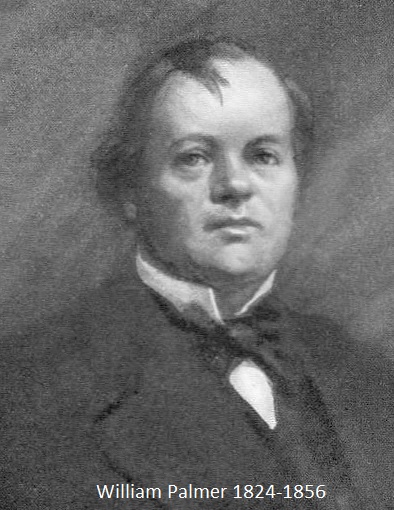
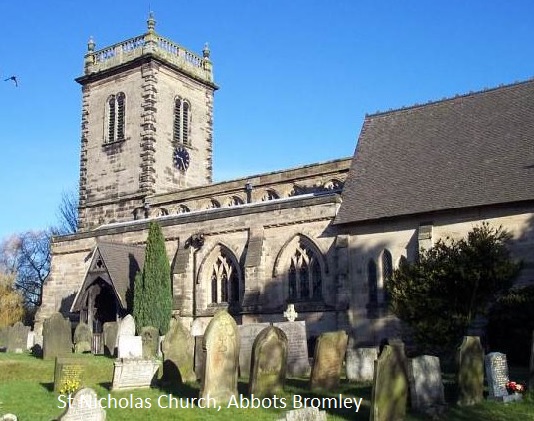
During 1854 Britain suffered a cholera epidemic which Ann is alleged to have died from on 29th September 1854. Did William view this merely as a gamble which paid off? Despite receiving payment in full from the insurance company, William was unable to clear his debts, and to compound matters, his debtors with whom he had settled part of his debt with forged cheques from his mother, were threatening to expose this fact to his mother. Time for another gamble. He insured the life of his brother, Walter, with the same company who had paid him out for the loss of his wife, this time taking a policy costing £780 (equivalent to £84,600) for a payout on death of £14,000 (equivalent to £1.52 million). You win some, you lose some, for brother Walter died on 16th August 1855. That sounds like a win, but turned out to be a loss, because the insurance company became suspicious and refused to pay out pending an investigation. The investigation subsequently revealed that Palmer had attempted to take out a larger policy on his brother's life with other companies, and that he had also attempted to cover the life of an employee, George Bate. It was clear to Palmer that he needed to take further, decisive action.
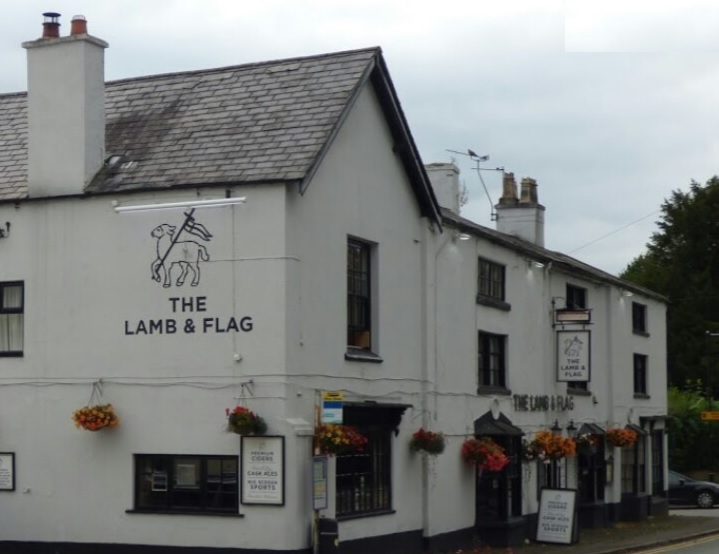
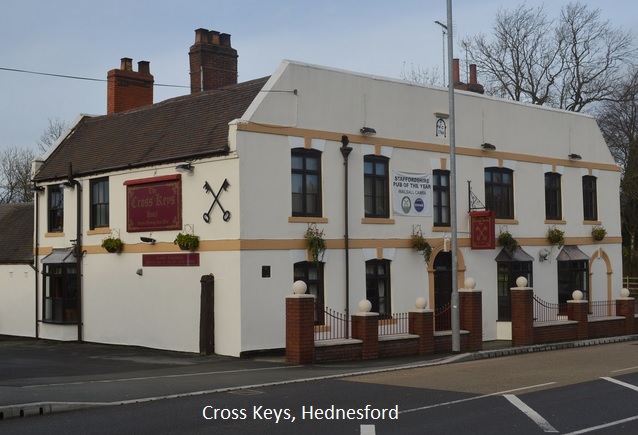
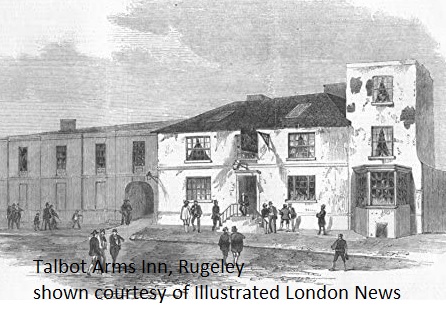
Palmer's best horse was Goldfinder, a chestnut colt by Faugh-A-Ballagh out of Liverpool, which was foaled in 1848. It should not be confused with the bay horse, Goldfinder by Snap out of Blank, which lived from 1764 to 1789 and remained unbeaten throughout its career. It won the 1768 1400 Guineas Stakes and the 1768 Ascot Stakes before going on to claim the 1769 Newmarket Challenge Cup and 1770 Newmarket Whip. Whilst Palmer's Goldfinder was not quite as talented, it did achieve a very memorable victory in 1853 when it won the forerunner of the Chester Cup which, in those early days, was called the Tradesmen's Plate. The horse was fortunate to win, given that Talfourd and Trifle held a 4-length advantage over Goldfinder, but the front two collided leaving Goldfinder to sneak through. Palmer was reported to have won £12,000 on the victory, equivalent today to £1.5 million. Palmer and Saunders returned to Rugeley in triumph, celebrating all night at the Cross Keys Inn. Three years later, after Palmer was found guilty of murder and hanged, his horses were auctioned by Tattersalls. One of the last winners he owned, Staffordshire Nan, sold for 300 guineas to Mr Bryant who promptly returned it to Saunders charge.
Wednesday 4th May 1853
Chester Tradesmen’s Plate over 2 1/4 miles
1. Goldfinder (30/1) owned by William Palmer and ridden by Aldcroft
2. Talfourd (6/1) owned by Mr Knowles and ridden by Tom Ashmall
3. Trifle (3/1 fav) owned by Mr T Parr and ridden by Wells
4. Little Jack (15/1) owned by Captain Key and ridden by Stanway
5. Newminster (15/1) owned by Mr A Nichel and ridden by Templeman
6. Retail (50/1) owned by Sir W Booth and ridden by Kitchener
7. Lady Evelyn (20/1) owned by Lord Wilton and ridden by Nat Flatman
8. Leopold (50/1) owned by Baron Rothschild and ridden by Charlton
9. Indian Warrior (100/1) owned by Mr Morris and ridden by Basham
10. The Black Doctor (16/1) owned by Mr Saxon and ridden by Abrahams
11. Timid Fawn (50/1) owned by Mr Morris and ridden by Hiet
12. Bellewstown (50/1) owned by Lord Waterford and ridden by D Doyle
13. Ianthe (100/1) owned by Mr Cooper and ridden by Crouch
14. Scarecrow (50/1) owned by Mr Greville and ridden by Harding
15. Constantine (50/1) owned by Mr E R Clarke and ridden by Quinton
16. Missive (12/1) owned by Mr E R Clarke and ridden by S Steggles
17. Snowdon Dunhill (100/1) owned by Mr Kimberley and ridden by Rickards
18. Peggy (7/1) owned by Mr Wilkins and ridden by Bates
19. Helena (50/1) owned by Captain Scott and ridden by Carroll
20. Hannah (50/1) owned by Mr Burke and ridden by Hughes
21. Contentment (30/1) owned by Mr J M Stanley and ridden by J Steggles
22. Lord Lieutenant (10/1) owned by Mr Wilkinson and ridden by Tom Oliver jnr
23. Auchinleck (100/1) owned by Mr W Holmes and ridden by Perfect
24. Rosalba (100/1) owned by Mr Balfe and ridden by George Fordham
25. Guicowar (100/1) owned by Mr Thompson and ridden by J Gill
26. Ann Page (100/1) owned by Mr T Powell and ridden by Prior
27. Braxy (100/1) owned by Mr Hind and ridden by Chilman
28. Allegro (100/1) owned by Captain Scott and ridden by J Jones
In a typical season William Palmer would have had up to 6 horses in training and would have travelled as far north as Newton, as far west as Chester, as far east as Newcastle upon Tyne, and as far south as Warwick. In the 1853 season he owned 6 horses:-
DOUBT ran at Liverpool, Warwick, Leamington, Rugeley
GOLDFINDER ran at Chester, Shrewsbury, Lichfield and Newcastle upon Tyne
POPE JOAN ran at Shrewsbury
LA JUIVE ran at Newton
TRICKSTRESS ran at Wolverhampton
LURLEY ran at Rugeley, Shrewsbury
At the very last race meeting held in Rugeley on Thursday 26th and Friday 27th October 1853 Palmer had runners. On the opening day, he would have witnessed all 3 favourites getting beaten, and may well have suffered a financial loss as a consequence. The opening Rugeley Stakes over a mile and a half was won by Le Juif (5/2) with the favourite Candlewick (Evens) back in third. The Copeland Handicap over a mile and a quarter followed, which saw Mr Flintoff's Whalebone (5/2) win by half a length, with the favourite, Maid of Golborne (2/1) trailing behind in fifth. The day concluded with a Selling Stakes which was won by Mr Shelmerdine's Morning Star, winning by a length from The Empress. The next day, Friday 7th October 1853, the final day races were held in Rugeley, the day began with the Innkeeper's Plate over a mile and a half going to Eliza (6/4), who beat the winner from the previous day, Le Juif (5/4 fav). The Nursery Handicap over a mile followed, in which William Palmer had a runner.
The Rugeley Nursery Handicap over a mile
1. Sister to Stafford (Evens fav), chestnut filly owned by Mr Meeson and ridden by Wells
2. Topsy (4/1), bay filly owned by Mr Halford and ridden by Wilson
3. Czarina (4/1), black filly owned by Mr Taylor and ridden by Tom Ashmall
4. Bay filly by Venison (4/1), owned by Mr Owen and ridden by Whitehouse
5. Lurley (4/1), bay filly owned by Mr William Palmer and ridden by Wakefield
5. The Field-Marshall (3/1), brown colt owned by Mr Copeland and ridden by Stanway
The day concluded, after which Rugeley races were confined to history, with the Anglesey Stakes, over two and a quarter miles, in which William Palmer saddled the appropriately named Doubt.
The Anglesey Stakes over 2 1/4 miles
1. Doubt (4/5 fav), bay mare owned by Mr William Palmer and ridden by Wells
2. Ethelwolf, brown colt owned by Mr Oliver and ridden by Wakefield
3. Liberty, brown gelding owned by Mr Adey and ridden by Tom Ashmall
4. Roger Thornton, black colt owned by Mr Bennyon and ridden by Lee
5. Morning Star, bay colt owned by Mr Shelmerdine and ridden by Wilson
Back to the desperate days of 1855, after his wife had died and the refusal of a payment by the insurance company, Palmer needed money and he needed it quickly. To compound matters, after his wife died in September 1854 William started an affair with his housemaid who quickly became pregnant. The child, Alfred, was born on 27th June 1855 and Palmer needed to boost his finances. He agreed to attend Shrewsbury Autumn races between 13th and 15th November with his wealthy friend John Parsons Cook. The pair bet heavily and drank equally heavily. Cook won at the races but lost in the drinking stakes. On the first day, Tuesday 13th September, in the first 4 races of the day two favourites won. However, the next race was the Shrewsbury Handicap Sweepstakes over 2 1/4 miles, with joint-favourites Polestar and Quince at 7/2. Cook favoured Polestar and had £1000 on to win £3,500, while Palmer favoured the other joint-favourite Quince. Polestar prevailed by a neck from Speed the Plough and Saraband, with Quince unplaced. Cook won, Palmer lost. Two races later, the last race of the day, a Sweepstake Selling race over 5 furlongs contained Palmer's horse, Staffordshire Nan, an unfancied outsider behind the odds-on favourite Agra at 4/5. However, remarkably Staffordshire Nan, ridden by Tom Ashmall, won by half a length from The Flying Duchess and Eardrop. Palmer must have had a good bet on her because she was bought in by Palmer in the subsequent after-race auction. The pair celebrated their various successes at the races with an evening drinking session at The Raven public house, although Cook, who drank gin, complained that the gin had burnt his throat. The second day of the 3-day meeting on 14th November began with Palmer receiving a note from one of his creditors, Pratt, who threatened to ask his mother to pay his debts if Palmer refused to settle them himself. Palmer thought the way out was to bet heavily at Shrewsbury, but four of the five favourites lost, and no one was going to get rich when Polestar won a 2-horse race at the prohibitive odds of 1/4 fav, the winners of the other 4 races being Romeo, Alfred, Garland and Laura Selina. A further drinking session took place in the evening, with Cook so badly affected by the gin he was drinking that he vomited on a number of occasions.
A new day a new opportunity to clear the debts, Palmer and Cook returned to Shrewsbury with high expectations on Thursday 15th November 1855, particularly as William Palmer had two horses running at the meeting, and he fancied both would win. The opening Handicap Plate over 6 furlongs went to Octavia (4/6 fav), followed by a win for Cineas (6/4) in the Scurry Stakes over 4 furlongs. The Welter Cup, over a mile and a quarter, was won by Eulogist (5/2 second favourite), and then the action began. William Palmer's The Chicken, ridden by the crack jockey of the day George Fordham, was made the 4/1 joint-favourite with Gamekeeper, ridden by Mundy, and William would have heavily supported his gelding, while Cook backed Lord Alfred, ridden by Bearpark, at 9/1. In an exciting finish, fought out between The Chicken, Lord Alfred, Gamekeeper and Claret, it resulted in a win for Lord Alfred by half a length, with a neck between Claret and Gamekeeper, and just a further head back to The Chicken in fourth. Was this the breaking of Palmer and the sealing of Cook's destiny, or did Palmer have one last arrow in his quiver to fire in the shape of Staffordshire Nan, his unexpected winner on day one? The race which answered that question was the Copeland Nursery Handicap over a mile, with the main betting centred on Lady Florence (4/1), Adam (7/1), Laverna (7/1) and Staffordshire Nan (8/1), while The Shadow was unfancied at 100/8. In the event Staffordshire Nan ran disappointingly and was down the field in twelfth, the race being won by The Shadow, half a length in front of Byrsa and Elfrida. Palmer was done for and desperate measures were needed. He and Cook travelled back to Rugeley, with Cook staying at the Talbot Arms. They met there two days later for another drinking session, when Cook became ill again. After a discussion with Palmer, Palmer acquired Cook's betting book, either with permission from Cook or, more likely, without Cook's knowledge. Palmer gave Jeremiah Smith, Cook's solicitor, a bottle of gin for Cook to enjoy and help his recovery, but it did the reverse. Indeed, Elizabeth Mills, who worked at the Talbot Arms, took Cook some of the gin and sampled it herself and she also became ill. It became clear later that Palmer had begun collecting some of the winnings recorded in Cook's betting book, and had bought some strychnine from Dr Salt. Cook died on 21st November and a flawed 'post mortem' proved inconclusive.